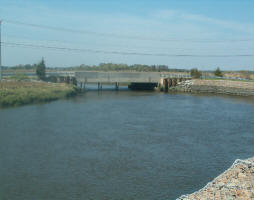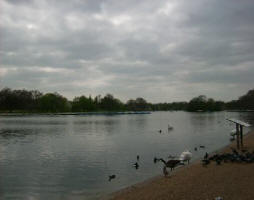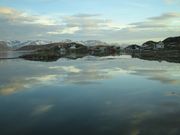 Renewal of the Union for the Mediterranean
Renewal of the Union for the Mediterranean
On June 25th, the first ministerial meeting of the Union for the Mediterranean on Sustainable Development was held in Paris. For many participants in this meeting, it was a "revival" of the process of UM even if the union still faces enormous challenges.
A Union for the Mediterranean blocked since the winter
Launched at the Paris Summit of July 13th 2008, the
Union for the Mediterranean has witnessed a blockage with the Israeli
operation on Gaza during last winter. Since then the Arab members did
not wish to resume dialogue in a situation of war between Israel and
Gaza.
In fact since its conception the UM raised a decisive
question of "method": shall the Israeli-Palestinian conflict be
resolved first to allow the creation of the UM or should the UM be
launched now to encourage Peace in the Middle East?
"The projects are not enough" criticized Didier
Billion, co-director of the Institute of International and Strategic
Relations (IRIS) and specialist of the region. "This is not the way we
will put an end to the Israeli-Palestinian conflict", “this issue will
be resolved first through policy" he says on Euractiv website.
For
his part, N. Sarkozy had drawn a parallel between the launch of the
Union for the Mediterranean and the European Union’s, referring to the
ECSC as a project that has brought the European Union we nowadays know.
However, the researcher points out that "the ECSC is a project that
would not have been initiated until a political agreement between
France and Germany." "It is the policy before the projects, he
concludes, not the reverse."
After Gaza, re-launching cooperation
Resuming the UM despite last months’ conflict in Gaza
and a palpable tension between the Arab countries and Israel was the
challenge that awaited the members of the UM on June 25th in Paris.
Le Monde
welcomes the Franco-Egyptian ability ( the UM is currently co-chaired
by both countries) to bring together the Israeli Minister of
Environment, Gilad Erdan and Minister of Economy of the Palestinian
Authority, Bassem Khoury, with their UM counterparts. It was the first
time since the outbreak of the Israeli offensive on Gaza in December
2008 that such a meeting had taken place. "A few months ago nobody
would have bet on our chances of reaching up such a meeting. It shows
that those who always want that project to fail are wrong. We can say
that the UM is revived" said H. Guaino to Le Monde. "We get the
momentum again" said Minister Borloo. Projects are going faster than
the political process."
The Moroccan daily Le Matin focuses on
the will of Henry Guaino, special adviser to the French President, to
lead a project of water supply and water treatment plant in Gaza as a
"priority" of the UM. "For the first time, we are having a meeting of
ministers so consequently a political meeting: the proof that we
overcome, although it is difficult, the tragedy in Gaza". Mr. Borloo
said that the project was concerning "about 20% of the water needs of
the Palestinian territories.”
Questioned by AFP, the Israeli Minister of Environment, Gilad Erdan considered the meeting as a "very important step forward."
On Euractiv website,
the French leaders involved in the UM believe that if the process could
be revived it is because the "method" differs from the Barcelona
Process and "because (we) changed the parameter of cooperation". The
meetings of the Barcelona Process were gathering ambassadors and
experts together, whereas those of the Union for the Mediterranean meet
Heads of State and Government, a “valuable asset", according to Gilles
Mentré. Such view is shared by the President of the Arab World
Institute, Dominique Baudis, who explains on Euractiv
that "it was a mistake to launch the Barcelona process only on a
ministerial level. When the initiative is taken by the Heads of State
and Government, the political impact is stronger."
"We discussed the need to reactivate the Union for the Mediterranean in its technical aspects and sectors," said Aboul Gheit. For the Egyptian leader, it is now time "to achieve the original idea of the UM, which was not designed to resolve the Israeli-Palestinian conflict or conflicts between countries, but to strengthen the relations" between countries bordering the Mediterranean.
Sustainable development at the heart of the UM
L’Express reminds the somewhat "apolitical" aspect of the meeting in a context of obvious political and diplomatic tensions, the purpose of the meeting being to coordinate the national policies of the 43 member states of the UM concerning ecology. Four major issues were highlighted: water management, transport, energy and urban development. The regional situation constitutes an emergency: with one of the fastest growing rate of urbanization of the planet, the Mediterranean area knows the consequences of water stress due to increased population pressure on the coast.
“This meeting provides an important impetus (...) it allows us to move from a policy framework to an effective implementation", has also declared the Egyptian Minister of Industry, Rachid Mohamed Rachid, who chaired the meeting.
--
Related:
The Barcelona Process and the Mediterranean Union: Possibilities for the future
UpM : Le concret enfin en marche
L'environnement relance l'Union pour la Méditerranée - Projet sur l'eau
| Contact information | n/a |
|---|---|
| News type | Inbrief |
| File link |
http://www.medea.be/index.html?page=2&lang=en&doc=1962 |
| Source of information | MEDEA |
| Keyword(s) | Union for the Mediterranean, UfM |
| Subject(s) | ENERGY , FINANCE-ECONOMY , INFRASTRUCTURES , POLICY-WATER POLICY AND WATER MANAGEMENT , PREVENTION AND NUISANCES POLLUTION , RISKS AND CLIMATOLOGY , WATER DEMAND |
| Relation | http://www.emwis.net/thematicdirs/news/lenvironnement-relance-lunion-pour-la |
| Geographical coverage | Europed |
| News date | 21/08/2009 |
| Working language(s) | ENGLISH , FRENCH |
 you are not logged in
you are not logged in





